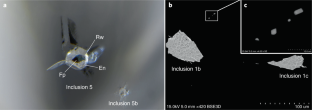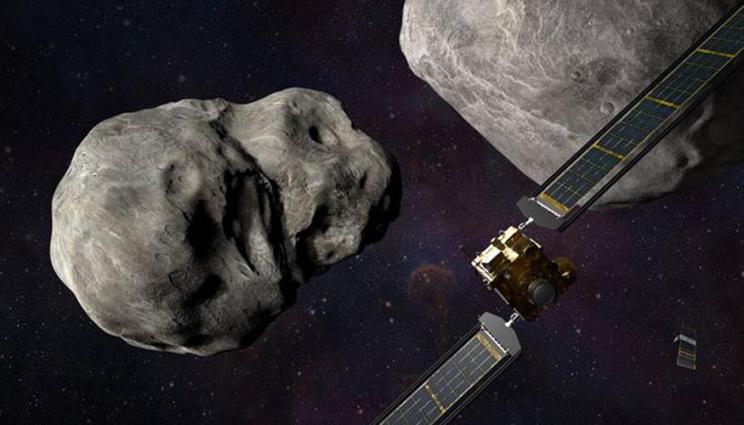2022-09-27 フランクフルト大学
遷移層(TZ)とは、上部マントルと下部マントルを隔てる境界層の名称である。深さ410〜660kmに位置する。ここでは、23,000気圧という非常に高い圧力がかかり、上部マントルの約70%を占めるオリーブグリーンの鉱物、カンラン石(別名ペリドット)が結晶構造を変化させる。深さ410km付近の移行帯の始まりでは、より高密度のワズレアイトに、深さ520kmでは、さらに高密度のリングウッダイトに変化している。
研究チームは、アフリカのボツワナで産出されたダイヤモンドを分析しました。深さ660キロメートル、リングウッダイトが代表的な鉱物である地球下部マントルとの遷移帯の接触部に直接形成されたものである。この地域から産出されるダイヤモンドは、すでにダイヤモンドの1%しかない超深海産のダイヤモンドの中でも、非常に希少なものである。分析の結果、この石にはリングウッダイトという鉱物が多数含まれており、しかも水分を多く含んでいることが判明した。さらに、研究グループは、この石の化学組成を決定することができました。これは、世界中の玄武岩に含まれるほぼすべてのマントルノジュールの組成と正確に一致している。
遷移帯の水分が多いと、その上下のマントルがほぼ同じ量の水を吸収できないため、地球の力学的状況が変わってしまうのだ。その結果、例えば、下から流れてくる高温のマントル噴出物が、遷移帯の下に滞留してしまうということが起こる。マントル噴出物に含まれる水分が放出され、上昇する物質の融点が下がるのである。その結果、この部分の岩盤は強靭でなくなり、塊の動きに勢いが出てきた。これまでダイナミクスの障壁であったトランジションゾーンが、突然、地球規模の物質循環のドライバーとなる。
<関連情報>
- https://aktuelles.uni-frankfurt.de/forschung/ozean-im-erdinnern-wasser-in-hunderten-kilometern-tiefe/
- https://www.nature.com/articles/s41561-022-01024-y
ダイヤモンドで採取された地球マントル660km不連続面の含水かんらん岩質片 Hydrous peridotitic fragments of Earth’s mantle 660 km discontinuity sampled by a diamond
Tingting Gu,Martha G. Pamato,Davide Novella,Matteo Alvaro,John Fournelle,Frank E. Brenker,Wuyi Wang & Fabrizio Nestola
Nature Geoscience Published:26 September 2022
DOI:https://doi.org/10.1038/s41561-022-01024-y

Abstract
The internal structure and dynamics of Earth have been shaped by the 660 km boundary between the mantle transition zone and lower mantle. However, due to the paucity of natural samples from this depth, the nature of this boundary—its composition and volatile fluxes across it—remain debated. Here we analyse the mineral inclusions in a rare type IaB gem diamond from the Karowe mine (Botswana). We discovered recovered lower-mantle minerals ringwoodite + ferropericlase + low-Ni enstatite (MgSiO3) in a polyphase inclusion, together with other principal lower-mantle minerals and hydrous phases, place its origin at ~23.5 GPa and ~1,650 °C, corresponding to the depth at the 660 km discontinuity. The petrological character of the inclusions indicates that ringwoodite (∼Mg1.84Fe0.15SiO4) breaks down into bridgmanite (∼Mg0.93Fe0.07SiO3) and ferropericlase (∼Mg0.84Fe0.16O) in a water-saturated environment at the 660 km discontinuity and reveals that the peridotitic composition and hydrous conditions extend at least across the transition zone and into the lower mantle.



